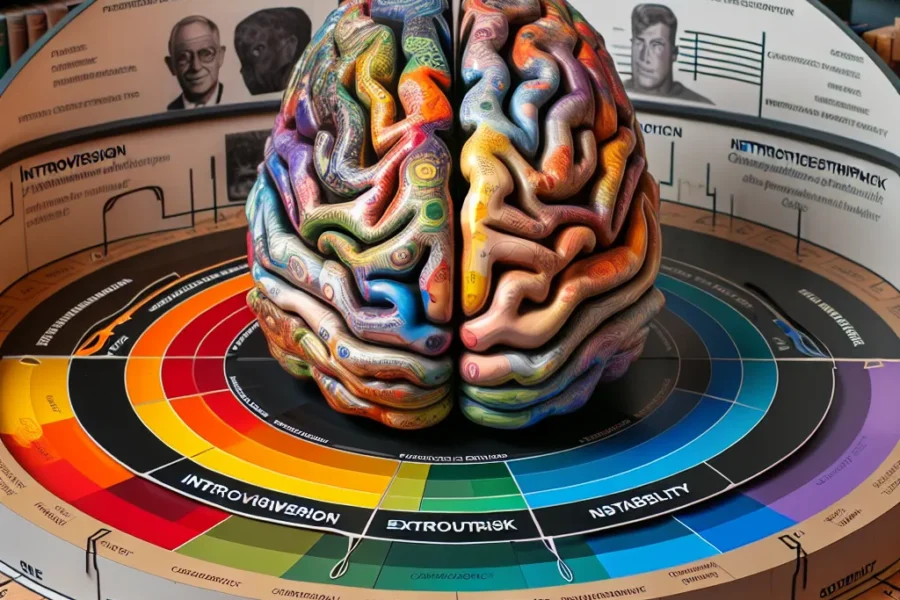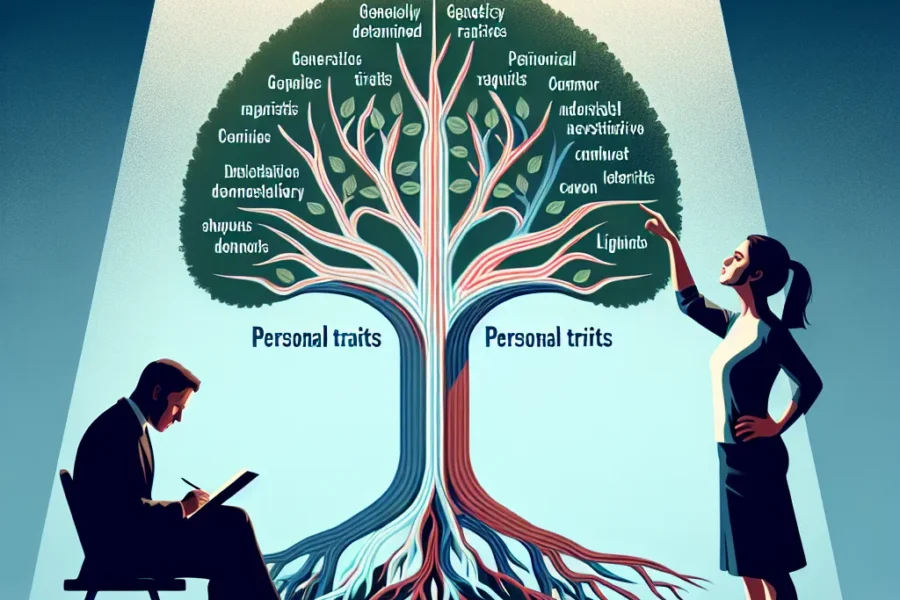Abraham Maslow and the Quest for Self-Actualization
The journey towards understanding the fullest potential of human beings has been long and arduous, marked by various psychological theories and interpretations. Among those theories, the concept of self-actualization, introduced by Abraham Maslow, stands out as a significant contribution to the field of humanistic psychology. Maslow’s hierarchy of needs, culminating in self-actualization, provides profound insights into the human quest for personal growth and fulfillment.
Abraham Maslow, an American psychologist born in 1908, pioneered a movement that considered the psychological health of the average person, rather than focusing solely on pathological conditions. His humanistic approach to psychology emphasized the positive potential of human beings, steering away from the more traditional psychoanalytic and behaviorist schools of thought. Maslow believed that humans have an innate drive to realize their own maximum potential and capabilities.
At the heart of Maslow’s humanistic psychology lies the hierarchy of needs, a five-tier model of human needs, depicted as layers within a pyramid. From the bottom of the hierarchy upwards, the needs are physiological, safety, love and belonging, esteem, and self-actualization. According to Maslow, one must satisfy the lower level of needs before progressing to higher levels.
Self-actualization is the pinnacle of Maslow’s hierarchy. It represents the peak of personal development, a state in which individuals are in harmony with their true selves, possessing a deep understanding of their capabilities, desires, and their place in the world. Self-actualized people are described as those who have achieved their potential and are doing what they believe they were meant to do.
Achieving self-actualization requires a holistic approach to life and personal growth. It is a process marked by constant self-discovery and personal development. Maslow characterized self-actualizing individuals as those who embrace reality and facts rather than denying the truth. They are autonomous, enjoying solitude and deeper personal relations, rather than superficial ones. They are also creative, with a fresh rather than clichéd approach to problem-solving.
Furthermore, self-actualizers have what Maslow referred to as peak experiences. These are moments of intense joy, creativity, fulfillment, and transcendence that give life a sense of meaning. Self-actualizers often experience a profound connection to humanity and a deep appreciation for life’s basic pleasures.
The road to self-actualization is laden with challenges. It requires transcending beyond one’s ego, overcoming fears, and embracing vulnerabilities. It involves the courage to break free from dependency on others’ opinions and societal expectations, allowing for individual creativity to flourish. Self-actualized individuals also need to reconcile dichotomies within themselves – balancing autonomy with interdependence, rationality with emotion, and work with play.
In the digital age, the desire for self-actualization has found new avenues for expression. The rise of online platforms and social media has enabled individuals to pursue self-growth and personal fulfillment outside of traditional societal structures. People have unparalleled access to resources and communities that can support their journey towards self-actualization.
Businesses can take inspiration from Maslow’s hierarchy of needs by focusing on creating products and services that align with consumers’ drive for self-improvement and self-fulfillment. Content that is not only informative but also inspirational can leverage the human desire for growth, making self-actualization a relatable and achievable goal for a wide audience.
Moreover, self-actualization has become a sought after ideal in the workplace. Companies that recognize the human need for growth and purpose, and create environments that foster these needs, can lead to more productive, satisfied, and loyal employees. Organizational cultures that embrace Maslow’s principles are likely to cultivate leadership that is visionary and empathetic, contributing to the overall well-being of the workforce.
Educational institutions are also taking note of Maslow’s theories, incorporating programs that address not only intellectual development but also emotional and psychological well-being. This holistic approach to education seeks to nurture self-actualized individuals who are ready to contribute positively to society.
Self-actualization remains a concept that both entices and eludes many, as the ever-evolving journey of personal growth knows no clear endpoint. It is a never-ending quest to become the best version of oneself. As Maslow himself pointed out, what a man can be, he must be, encapsulating the innate human striving for fulfillment and purpose.
Ultimately, the quest for self-actualization is deeply personal yet universally relevant. Abraham Maslow’s legacy endures through each individual’s journey to understand and realize their full potential. In a world that is ever-changing and fraught with uncertainty, the pathway to self-actualization offers hope and direction for those seeking to lead a purposeful and authentic life.
Maslow’s ideas about self-actualization continue to resonate across various disciplines, from psychology to business to education. As we navigate the complexities of the 21st century, the significance of self-actualization is only amplified. It remains a beacon that guides individuals to not only meet their basic needs but to transcend them in the pursuit of personal excellence and communal harmony.
In conclusion, Abraham Maslow’s concept of self-actualization provides valuable insights into the human capacity for growth and fulfillment. It stands as a testament to the resilience and adaptability of the human spirit. As more individuals engage in the quest for self-actualization, society as a whole moves closer to realizing a world where personal development and collective well-being are intricately intertwined. The principles established by Maslow continue to fuel the aspirations of countless individuals who seek to turn their potential into reality, making the journey towards self-actualization one of the most enduring and transformative quests of human existence.



Leave a Comment